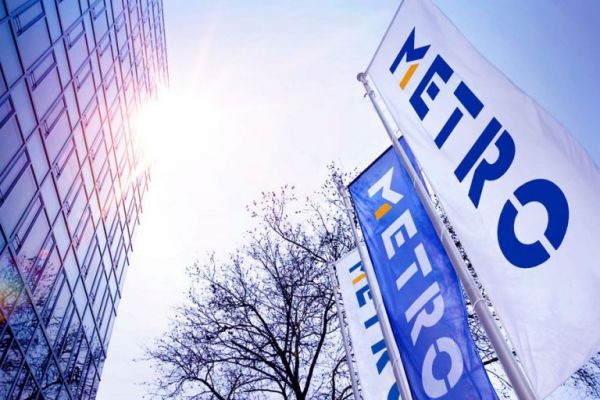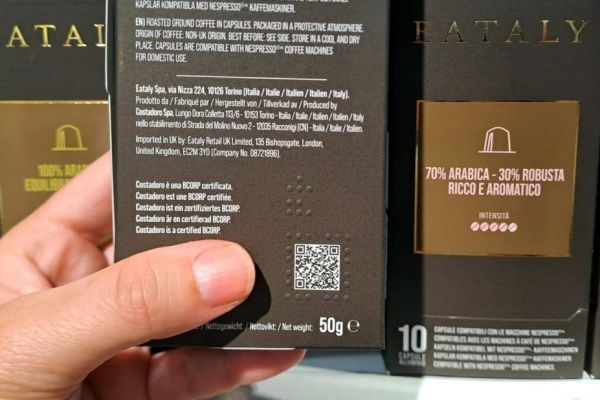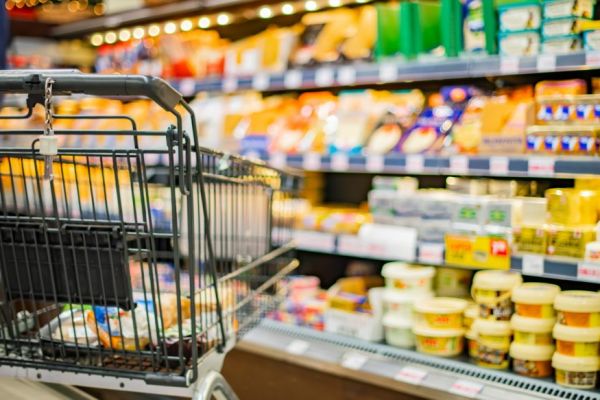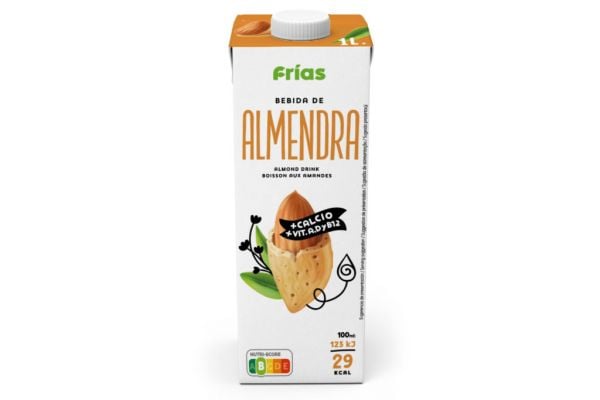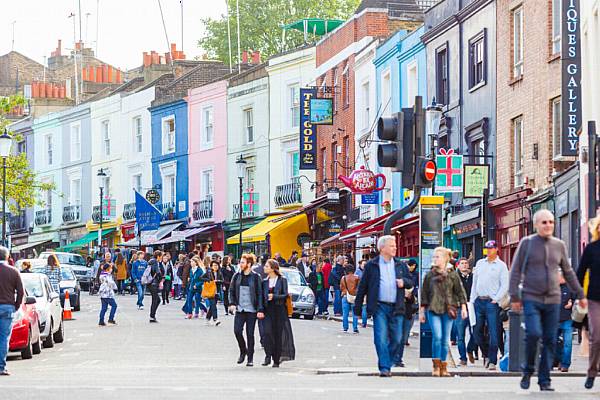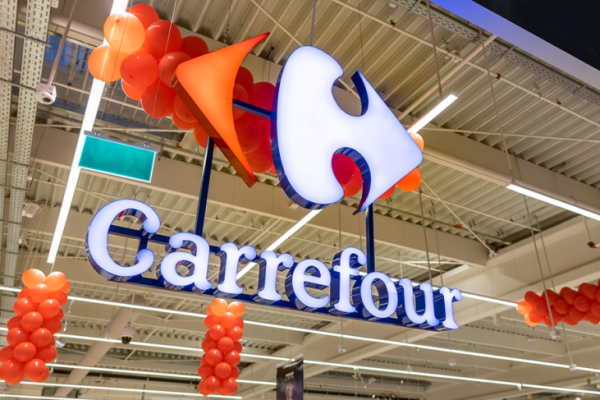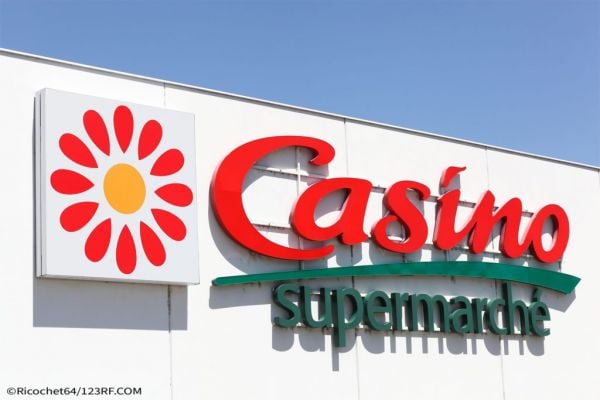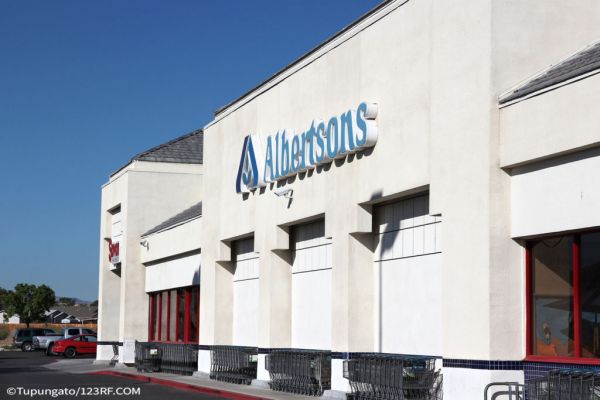Wholesale giant Metro AG announced its full-year results on 14 December, reporting record sales growth (+20%), and EBITDA at the upper level of its twice-raised outlook.
The group cited its sCore strategy as a key driver of growth in the 2021/22 financial year, with all three channels of its business – store-based, delivery and Metro Markets – in growth.
As part of that strategy, it is aiming to achieve more than €40 billion in annual sales by 2030, as well as more than €2 billion in EBITDA.
"All our channels and segments are growing, we are expanding our core business and our strategic customer share consistently and we are winning market shares," commented Metro AG chief executive Steffen Greubel.
Announcing its results, Metro held a press conference for analysts and trade media, at which ESM was present. Following on from that, here are ten ways in which Metro is positioning itself for the future, as well as seeking to redefine the wholesale sector.
1. Develop A Truly Multichannel Business
All channels contributed to Metro's growth last year – store sales were up 13%; foodservice distribution (FSD) rose 53%; Metro Markets, its new B2B platform was up 110%; and its 'hospitality digital' business (including Pro à Pro, Classic Fine Foods etc) welcomed 53,000 new subscribers.
As Greubel explained during the press conference, this has given the group the confidence to become a truly multichannel operator in the years to come, and convince its customers to do likewise.
"We are convincing more and more customers to move from single channel to dual channel, and from dual channel to multichannel," he explained, adding that the typical customer tends to "spend more" when utilising different channels.
"The multichannel effect is quite remarkable in some countries," he added.
2. Reinvest For Growth
At the top of its capital allocation priorities, Metro announced plans to 'reinvest for growth', with as much as 2.5% of its annual sales set to be invested in the business between now and 2024/25.
Growing sales through digital channels is likely to be a key focus as the decade progresses – while the share of digital sales stood at 9% last year, Metro hopes to increase it to 40% by 2030.
"We're going to be tough on implementation, and fast," Greubel said.
3. Trust In HoReCa
It's no secret that Metro enjoyed a boost as a result of the reopening of the HoReCa channel this year following the pandemic. But given the current cost of living crisis, people are likely to curb their spending in bars and restaurants, resulting in plateauing sales at Metro. Right?
Not so, argues Greubel, pointing to the fact that during the last economic downturn, a large proportion said that they were going to cut back on going to restaurants, when in reality, few did.
"People still like to go out. They like to enjoy a social life outside the home," he said, noting that Metro has made efforts to reduce prices for HoReCa customers to alleviate any potential drop-off in custom.
"I think that our market is protected a bit better than others from inflation," he added.
4. Private Label Penetration
According to Metro, its private label range experienced "record sales figures last year". This is partly thanks to its 'Mehr kaufen, dauerhaft weniger zahlen' ('Buy more, permanently pay less') approach, whereby regular customers can save as much as 18% on their transaction the more they shop.
Currently, own-brand accounts for a 19% share of sales at Metro, up from 17% the previous year, with the group hoping to increase this to 35% by 2030.
5. Metro Markets
Metro has described its new Metro Markets platform, which was launched in late 2019, as a 'start-up', and the B2B marketplace for non-food has certainly experienced the sort of growth seen by other tech newcomers, more than doubling its sales last year.
Metro Markets now boasts more than 1,400 partners (+56% year-on-year) and offers more than 700,000 products (+40% year-on-year), with operations in Germany, Spain, Italy and Portugal set to be joined by France and the Netherlands next year, and "two or three more countries" in 2024.
"As new countries and new geographies are added, [Metro Markets] becomes more and more attractive," said Greubel.
6. Tactical Acquisitions
Metro has long been adept at making strategic acquisitions to bolster its footprint in key target areas – Pro à Pro, Rungis Express etc – and this continued in its most recent financial year, as it completed the acquisition of Eijsink (a digital POS system provider for the gastronomy market) in March, followed by Metro Austria's takeover of wholesaler C&C Abholgroßmärkte GmbH (AGM) in May.
In August, this was followed by Metro's acquisition of Günther Group, a supplier of professional kitchen equipment.
7. Shedding Unnecessary Businesses
At the same time that Metro has been adding to its group, so it has reduced its exposure to non-core markets. The past year saw it close its operations in Myanmar and Japan, while last month saw it complete the sale of its business in Belgium – a country it "didn't see a future in," according to Greubel – to Sligo Food Group.
"The portfolio is now more strategic, and more balanced," he added.
8. Digital Security
In October, Metro suffered the same fate as many operators seeking to strengthen their digital offering, as it was subjected to a week-long cyber attack, which impacted checkout systems, electronic price labels and IT infrastructure.
From a sales perspective, this impacted the business to the tune of 'low triple digit' millions of euros in sales. As result, Metro has doubled down on its protective digital structures.
"We have continuously invested over the past two decades to be well-protected in our digital setup, and that has enabled us to fend off attacks in the past," CFO Christian Baier commented at the press conference. "Now, with that unfortunately successful cyber attack that we have seen, we are upgrading and hardening our systems from all perspectives, with regard to training and additional security measures."
9. Growing Its Sales Force
While much of Metro's investment in recent years has been in technology, it believes that this needs to be underpinned by a strong sales force. The business increased its head count by 800 last year, and is targeting an additional 6,500 team members by the end of the decade, as it bolsters its presence across multiple channels.
"Growing our sales force is one of the ways in which we are trying to foster our multichannel position," Greubel said.
10. Finding A Geographical Balance
The composition of Metro's geographical spread became a source of controversy earlier this year, as it found itself with a presence in two countries at war – Ukraine and Russia. In the former, the group has established a solidarity campaign, providing aid for refugees and colleagues alike, but its continued presence in the latter has drawn some criticism, with Metro accused of hypocrisy.
Addressing this during the press conference, Greubel said that the group "has a responsibility for 10,000 employees and more than a million customers" in Russia, adding that if it left the country, its business would likely be taken up by a local operator, leaving its customers, who are unrelated to the ongoing war effort, behind.
"We continue to look at the situation as to whether it is right to stay in that market," he added.
© 2022 European Supermarket Magazine – your source for the latest retail news. Article by Stephen Wynne-Jones. Click subscribe to sign up to ESM: European Supermarket Magazine.
